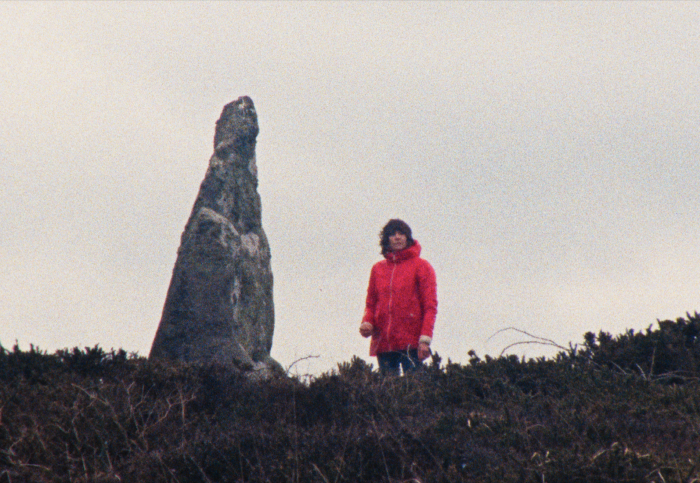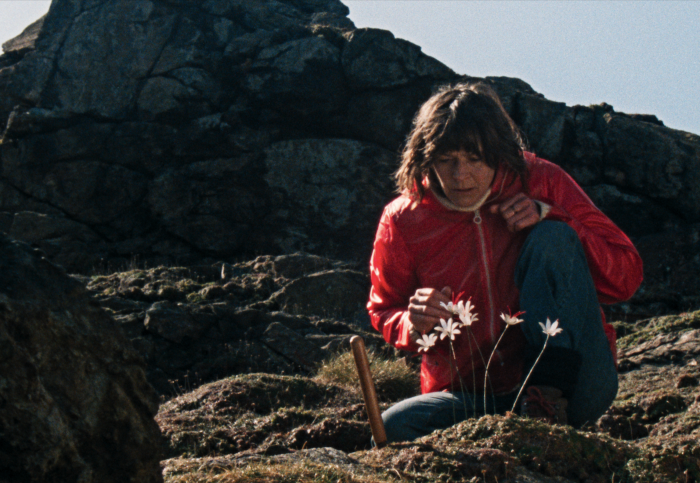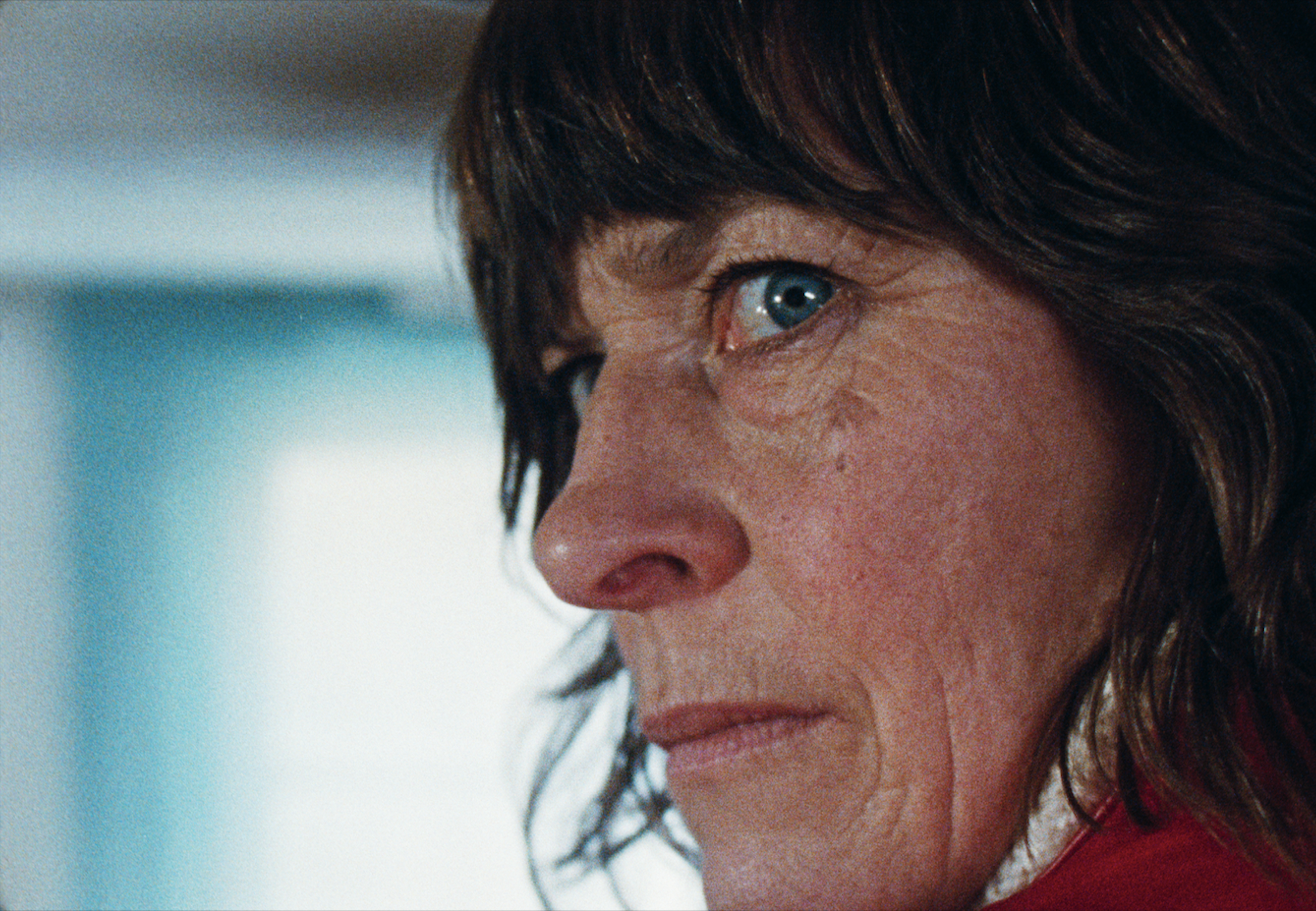Comparisons between Mark Jenkin’s feature film Bait and his most recent Enys Men (pronounced Enis Main) are inevitable.
Bait (2019) was a hit, not only in his native Cornwall, but also across the UK; with it going on to win the BAFTA for Outstanding Debut by a British Writer, Director or Producer that year. Bait attracted attention for the innovative use of a Bolex camera, with 16mm monochrome film that Jenkin processed by hand himself. Where Bait was filmed in black and white, Enys Men is filmed in vivid colour, although still on signature 16mm film stock. The result is a gorgeous looking folk-horror.
Enys Men (which is Cornish for ‘stone island’) is set in 1973 on an uninhabited, imaginary island off the coast of Cornwall, and follows the daily routine of a wildlife volunteer. The volunteer’s one role is to observe a collection of seven rare flowers. The longer she stays on the island however, the island begins to speak back to her, and the fragile space between the past and the present both shatter and intertwine in increasingly unsettling ways. Mary Woodvine, who plays the volunteer, does a phenomenal job of occupying the frame for the majority of the film. The role in theory is daunting, but she proves that she’s more than capable of holding the audience in a tight grasp.

Enys Men depicts the volunteer’s days in excruciating detail. Every day she must analyse the flowers for change or patiently await the arrival of the supply boat that delivers petrol for the power generator that keeps cutting out. The camera follows her tasks in real time, reminiscent of Akerman’s Jeanne Dielman. We experience the daily frustrations and monotonous routine of the volunteer; everyday is the same. Despite this, there is a certain comfort in the predictability of her routines. Jenkin works on his audience, so we fall easily into the volunteer’s patterns of behaviour. We may resent its repetitive nature, but as things take a turn, we also begin to fear even the slightest change. This is due to the pacing, every task or movement is repeated just past a common tolerance threshold, testing our boundaries as a viewer. Jenkin plays with us like he does with reality. Just as we become settled by solitude and silence, routine and reality are disturbed.
From the beginning, there are two things that are the most distinctive: its colour grading and sound. Perhaps it’s just because of Bait’s lack of colour, but the colours of Enys Men are incredibly striking. It reminded me of Agnès Varda’s documentary short Along the Coast especially with its vibrancy. But unlike Varda’s nostalgic depiction of the French Riviera, Enys Men’s colours are used against us. Their nostalgic grain lull us into a false sense of security. The volunteer’s red coat is stark against her surroundings, the white flowers look delicate. Jenkin films his protagonist with far away shots, and because of the costume choice, she is still visible as a small speck in the distance, engulfed by the landscape, much like one of the flowers in its harsh setting. In fact, the environment is as much a character itself as it tells us of its painful history through eery representations.

There is a notable lack of dialogue in the film, apart from the occasional encounter and reporting back to base. The ambient soundscape is more mundane; the ticking of the clock, scratching of a pencil, the whistling of the wind, and still unsetting all the same. It’s completely immersive, and trapping. Sound is used as a grating device, and the soundtrack, composed by Jenkin himself, adds to the imposing horror atmosphere.
Jenkin plays off spoken tales in Enys Men to bring Cornwall’s history back to life, by closely interrogating our tentative relationship to its landscape. These influences are so prevalent, that the film feels at times like it could be a scary story uttered around a campfire to a terrified audience.
Its timeless quality gives the impression it has existed for a very long time, and yet this solitary, environmental horror is perfect for our present times. It speaks volumes for the future of independent British film too.
Enys Men is playing in UK cinemas from 13 January and is showing at York Student Cinema on 6 March.
